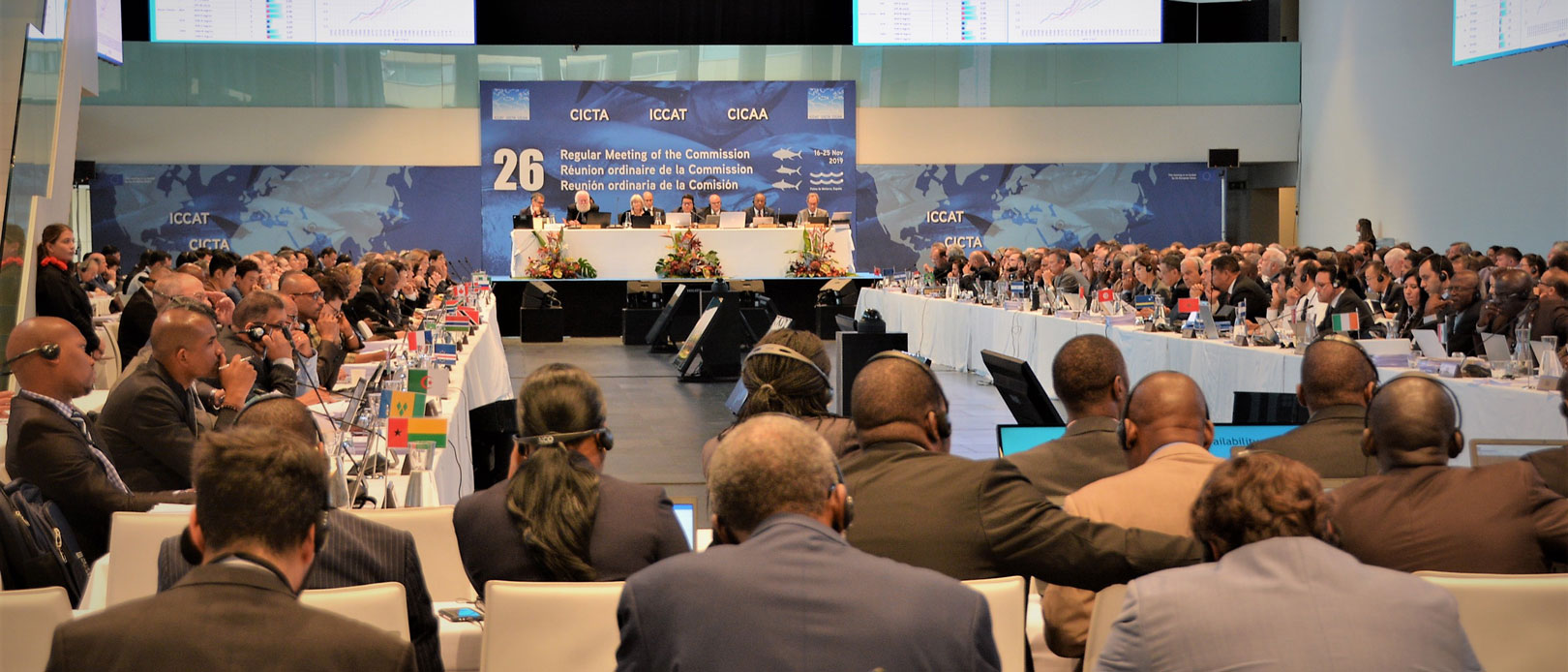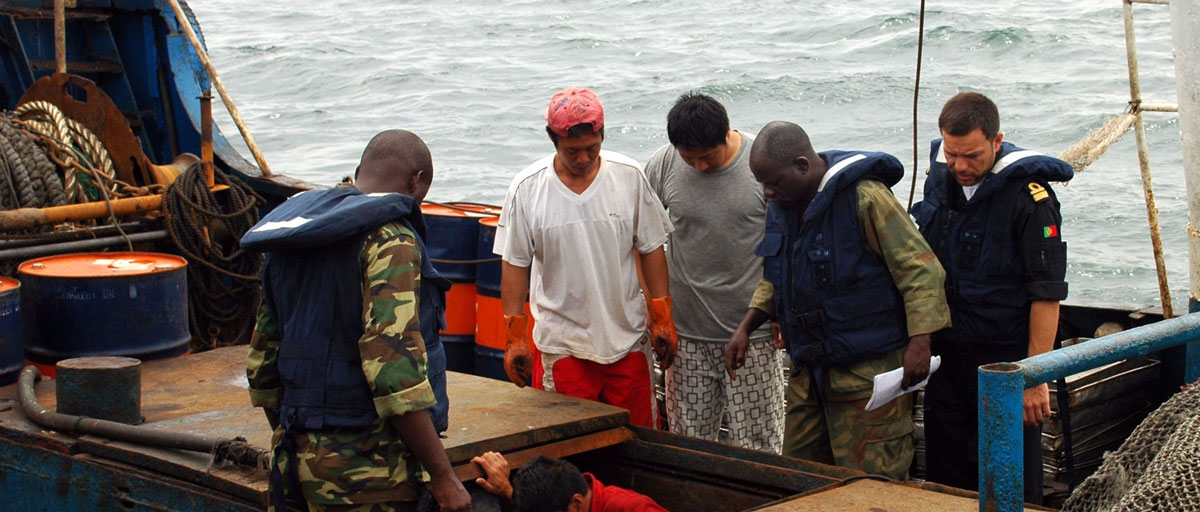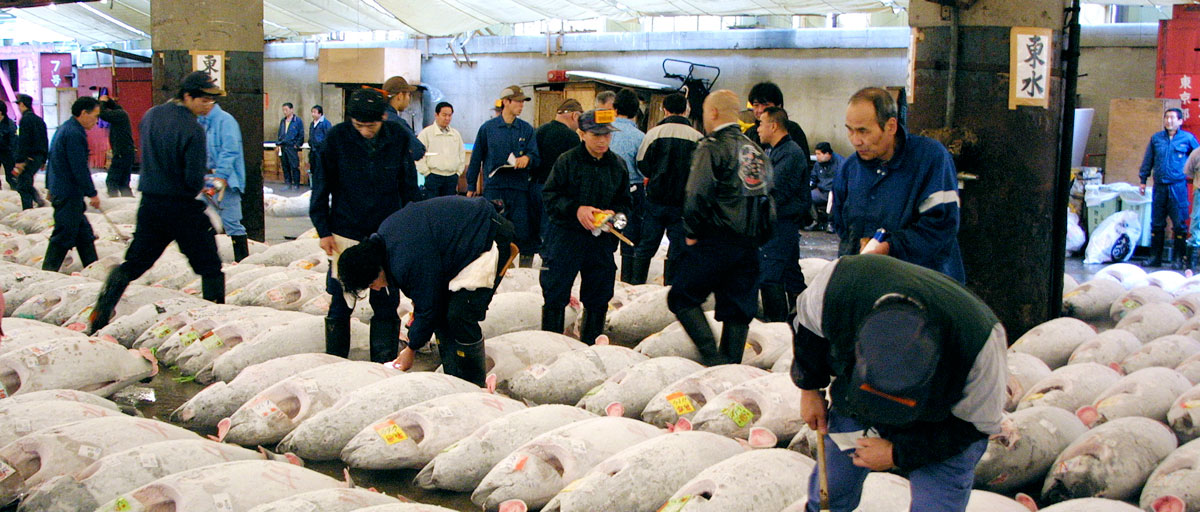Bildtext får vara max två rader text. Hela texten ska högerjusteras om den bara ska innehålla fotobyline! Photo: B. Christensen/Azote
FISHERIES MANAGEMENT
The road to transparency in regional fisheries management organizations

A study in Marine Policy describes the role of NGOs in developing procedural transparency across Regional Fisheries Management Organisations, and looks for insights for how transparency in these organizations can be improved. Photo: ICCAT
- Transparency is believed to enhance the capacity of international organizations to solve complex environmental problems
- This study investigates the roles of NGOs in relation to transparency of Regional Fisheries Management Organizations
- The findings demonstrate that NGOs have made multiple requests for transparency that have been addressed by member states, but also expressed several concerns
As openness continues to improve, some countries remain skeptical of the inclusion of NGOs
A WELL KEPT SECRET: Regional Fisheries Management Organizations (RFMOs) exist to ensure the sustainable use and long-term conservation of the large migratory fish stocks that move between the high seas and areas under national jurisdiction.
But RFMOs are far from perfect and not without scrutiny.
Since the establishment of these organisations, NGOs have been putting pressure on them to publicly disclose information and allow public involvement. Have they succeeded?
In a new publication in Marine Policy, centre researcher Matilda Petersson investigates the role of NGOs in developing procedural transparency - transparency related to processes and practices - across twelve RFMOs, and looks for insights for how transparency in these organizations can be improved.
The findings show that NGOs made multiple requests for transparency that were indeed addressed by member states, but that there were also several barriers. Part of the reason is because some countries have been, and continue to be, skeptical of engaging with NGOs.
This study represents a first step towards better understanding the roles of NGOs in relation to transparency in RFMOs.
Matilda Petersson, lead author
A descriptive approach
The research examined policy statements submitted to twelve RFMOs established between 1950 and 2012, with mandates covering the Pacific, Indian, and Atlantic Ocean, as well as the Mediterranean and Black Seas.
The policy statements were analysed for four overarching dimensions of transparency:
- public participation
- access to information
- access to outcomes
- concerns over barriers to transparency
These concerns suggest that there are tendencies in some RFMOs to restrict access when it comes to sensitive and contentious issues.
“The barriers to transparency may come with implications for RFMO effectiveness. But effectiveness does automatically increase if barriers to transparency are removed. Future research should delve further into the linkages between transparency and effectiveness,” concludes Petersson.
Methodology
This article examine twelve RFMOs established between 1950 and 2012, with mandates covering the Pacific, Indian, and Atlantic Ocean, as well as the Mediterranean and Black Seas. NGOs are expected to make requests for and express concerns over transparency in Commission meetings, i.e., the decision-making bodies [20]. The reports are publicly available on RFMO websites.
Older reports were included from the Commission for the Conservation of Antarctic Marine Living Resources (CCAMLR), International Commission for the Conservation of Atlantic Tunas (ICCAT), and Inter-American Tropical Tuna Commission (IATTC), as NGOs started to request access and attend meetings before 1995. In order to capture oral statements recorded in the reports, a search was conducted for the names and acronyms of participating NGOs (i.e., based on the ‘list of participants’) in Commission meetings, using the software MaxQDA.
Petersson, M. 2020. Transparency in global fisheries governance: The role of non-governmental organizations. Marine Policy
Available online 23 July 2020, 104128, https://doi.org/10.1016/j.marpol.2020.104128
For more information about the study, contact lead author Matilda Petersson:









